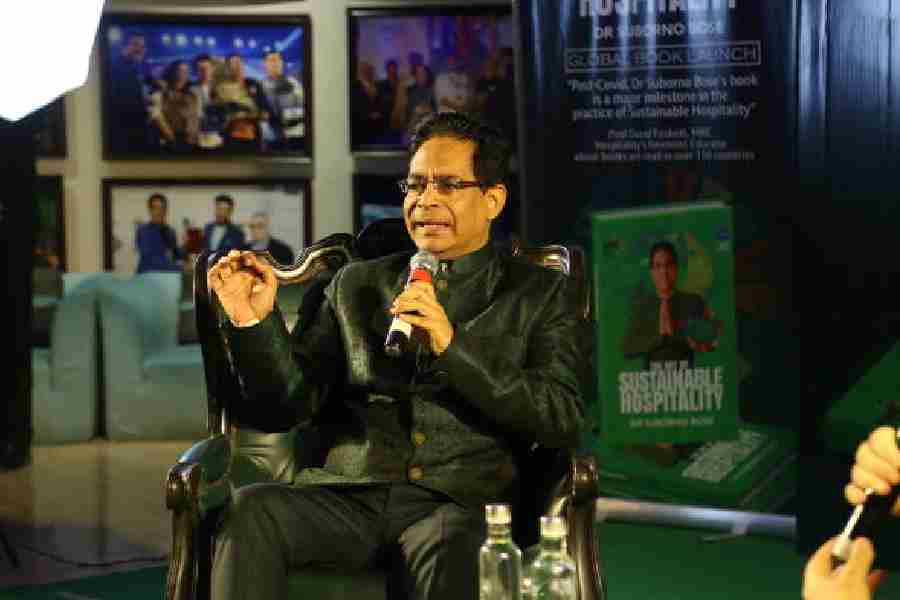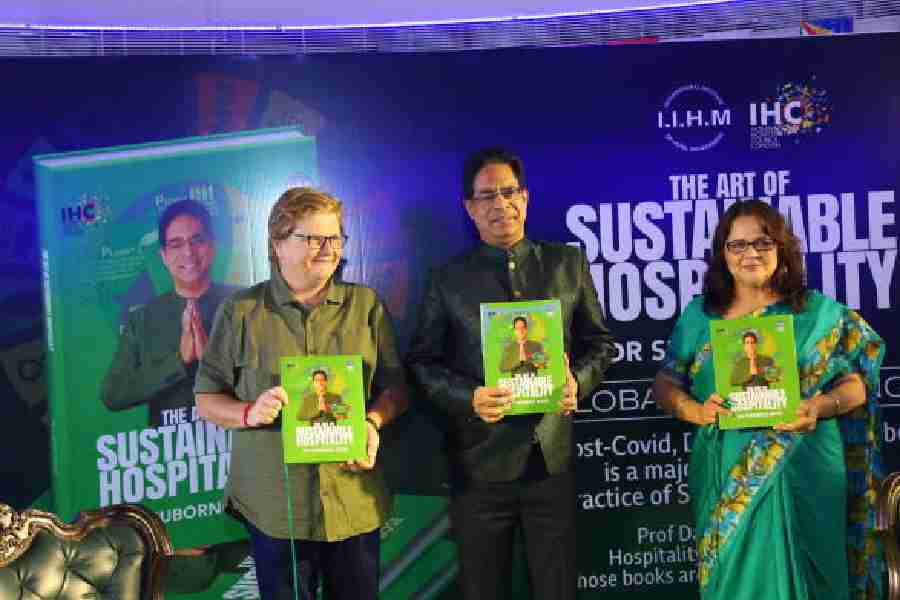Sustainability’ is not just another word for Suborno Bose. It’s a way of life. The founder chairman of the International Institute of Hotel Management (IIHM), has been practising and championing sustainable living for the last 15 years. In a new book, Bose talks about it further. The Art of Sustainable Hospitality puts forward a collective voice from the industry including the likes of celebrity chef Enzo Oliveri, Zurab Pololikashvili, secretary general, UNWTO and Nakul Anand, executive director, ITC Limited. It aims to present a comprehensive framework for sustainable practices in the hospitality industry taking into account details like hotel design and operations to food and beverage services. It is non-verbose and non-preachy and most importantly focuses on a triple bottom line approach taking into account social, environmental and economic factors. A tete-a-tete with Bose, who has also written The Art of Hospitality.
You have already authored The Art of Hospitality, which touches upon the sustainability aspect. What is it that led to write The Art of Sustainable Hospitality?
Youth empowerment is close to my heart. I have been working with young people for the last 30 years and it made me realise that the only way to change the world positively and to have a sustainable hospitality ecosystem is to train and create awareness among them. The youth is the torchbearer of the country and the embodiment of innovation, compassion and forward-thinking. And it is through their passionate efforts that we can build a more sustainable and responsible hospitality sector.
How seriously is the mantra followed in India and how has the concept of sustainability adapted itself to the industry in the last decade?
I have been the champion of sustainable living for 15 years or so and more with young people and students and not just at IIHM. I think the hospitality sector took time to adopt and embrace the practices and process of sustainability. Over the last few years, we have seen that there has been a strategic shift and the hospitality sector is embracing a lot of practices which are good for sustainability. Covid has been an important time and post-Covid the actual practice of sustainability became stronger and widespread even within the smaller hotels, restaurants and cafes in both organised and unorganised sectors… almost everyone is trying their best.
Waste of food and water is a known menace in the hospitality industry. How difficult is it to include the practice, then?
Practising sustainability is beneficial to the hospitality organisation. It saves energy and cost. It is actually less expensive to adopt sustainable practices. As I keep saying, instead of one hundred lights in a corridor of a hotel if we put a few sensors then only 10 lights will be utilised, saving a lot of energy. Social sustainability is also important. Retaining your employees and associates, saving the cost of acquisition of new recruits and training them goes a long way in social sustainability. This is very easy to practice and it should be practiced all over.

Suborno Bose addressed the audience at the launch
What are the sustainable practices that are part of your daily life?
I try to practice as much as possible, so does my family. From preserving water to making sure to take the stairs to save some energy. Recycling is very important and I don’t remember using plastic. Even when I stay in a hotel and I am offered water in a plastic bottle, I refuse. Similarly, I prefer digital invoices instead of physical copies thereby saving unruly wastage of paper and print. Food wastage is also close to my heart and I make sure to take only as much as I can eat. I try my best.
Any new habit that you have inculcated recently?
We love innovating at IIHM and our latest innovation has been reusing tea bag leaves. We are making lovely cookies from them. We distribute these cookies among orphans and at old age homes. Also, we don’t throw eggshells after use. We are creating a protein by blending them and using them in cakes and which are coming out very nicely. We are selling and distributing them as well.
What will your next book be about?
I am thinking on the lines of future of hospitality. We are known for our hospitality throughout the world. So we need to have a lot of sustainbility, technology and other things in our practices.
